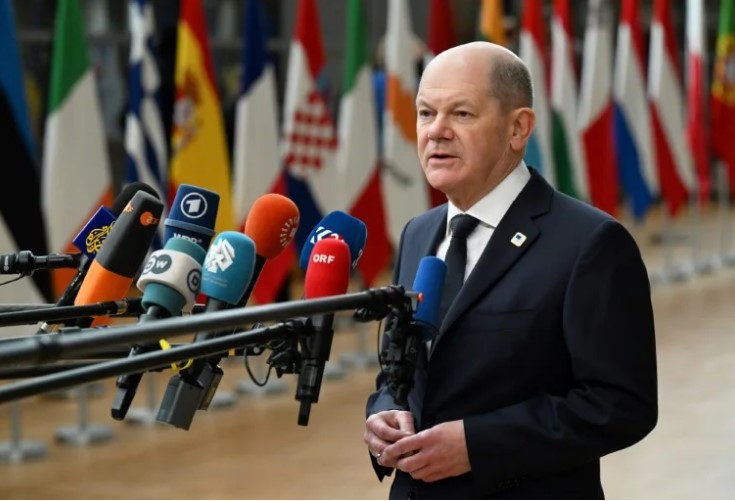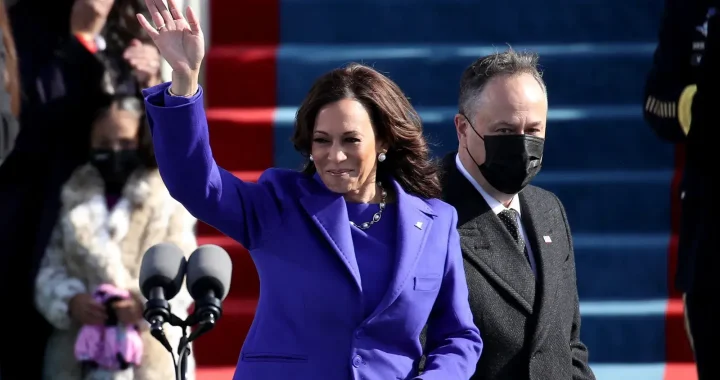EU supports Arming Ukraine Against Putin’s Threat

EU leaders convened at a summit on Thursday to address the challenge of supports Arming Ukraine under-equipped forces while also strengthening their own military capabilities in response to Russian President Vladimir Putin’s aggressive stance.
After more than two years of conflict, Ukrainian troops are finding it increasingly difficult to resist the Russian military due to a slowdown in Western ammunition deliveries.
Putin, on the other hand, has solidified his control over Russia by securing another six-year term in office following the suppression of the opposition.
Belgian Prime Minister Alexander De Croo emphasised the urgent need for continued and expedited support for Ukraine, particularly in terms of ammunition.
As a $60 billion aid package remains stuck in Washington, the EU leaders discussed a proposal to allocate funds from 200 billion euros in frozen Russian central bank assets for purchasing weapons for Ukraine, potentially providing around three billion euros ($3.3 billion) annually.
While a final decision was not expected during the summit, this initiative would supplement the more than 33 billion euros that the EU claims to have already contributed to arming Ukraine since the Russian invasion in February 2022.
German Chancellor Olaf Scholz, previously cautious about potential economic repercussions, endorsed the plan as legally viable. However, the Kremlin issued a warning, stating that it would retaliate using legal and other means if necessary.
In addition to the efforts to provide more weapons to Kyiv, the European Union (EU) is actively seeking ways to enhance Europe’s defence industry in order to arm Ukraine and strengthen its own forces.
READ: Russia Launches Dozens of Missiles at Kyiv in First Attack
Brussels has proposed a range of measures to increase capacity, but there are concerns that Europe is not progressing quickly enough.
While Russia has mobilised its economy for war, the EU has fallen significantly short of its commitment made last year to supply Ukraine with one million artillery shells by this month.
Meanwhile, the Czech Republic has taken the lead in an initiative to acquire hundreds of thousands of shells from around the world to send to Kyiv.
– Defense bonds? –
France and Estonia have suggested the idea of joint borrowing, similar to the extensive support package devised by the EU during the Covid pandemic, to finance defense spending.
However, a majority of member states, particularly the “frugal” countries like Germany, are reluctant to go that far.
“If that proposal doesn’t gain traction, then let’s put forward an alternative solution to address this funding issue, because there is a significant problem in financing the defense industry,” stated Estonian Prime Minister Kaja Kallas.
Instead, the discussion is expected to focus on expanding the funding for the defense sector through the EU’s lending institution, the European Investment Bank.
Currently, the bank is restricted to investing in only a limited number of “dual-use products” that have both military and civilian applications.
While the response to the conflict in Ukraine will be a central topic at the summit, EU leaders will also seek a unified position on the war in Gaza, with the presence of United Nations chief Antonio Guterres.
Diplomats indicate that a vast majority of countries support a call for an “immediate humanitarian pause” in Israel’s offensive and a warning against launching a ground operation in Rafah.
MORE STORIES : Kenyans to get passports within 21 days from April
Irish Prime Minister Leo Varadkar expressed that the Czech Republic and Austria, known for their strong support of Israel, were hesitant to support the proposed wording, posing a challenge to EU unity on the matter.
Varadkar criticized the European response to the crisis in Palestine, stating that it has not been Europe’s finest moment.
Meanwhile, EU leaders are expected to approve the initiation of membership negotiations with Bosnia, as the conflict in Russia has prompted efforts to expand the bloc.
According to diplomats, Bosnia is likely to receive approval to start talks, but significant reforms must be implemented before negotiations can begin in earnest.
Dutch Prime Minister Mark Rutte emphasized the need for a two-step approach, involving both the initiation of membership talks and addressing all outstanding issues before progressing further.
EU leaders grappled with balancing supports arming Ukraine forces and ensuring their own countries are armed against Putin’s increasing confidence.
 Breaking News – Kamala Harris Declares Intention To Run For Presidency
Breaking News – Kamala Harris Declares Intention To Run For Presidency  Obama joins Democrats urging Biden to ‘Reconsider’ Campaign
Obama joins Democrats urging Biden to ‘Reconsider’ Campaign  Eric Trump Demands Answers from Secret Service Director
Eric Trump Demands Answers from Secret Service Director  Europe Should Prepare for President JD Vance
Europe Should Prepare for President JD Vance  Is Anywhere Safe for Paul Kagame’s Critics?
Is Anywhere Safe for Paul Kagame’s Critics?  RNC Address Beef: Amber Rose Fires Back At Joy Reid
RNC Address Beef: Amber Rose Fires Back At Joy Reid  Biography Of Kamala Harris, Her Early Life, And Road To Presidency
Biography Of Kamala Harris, Her Early Life, And Road To Presidency  Top Achievements Of President Joe Biden You Might Have Missed
Top Achievements Of President Joe Biden You Might Have Missed